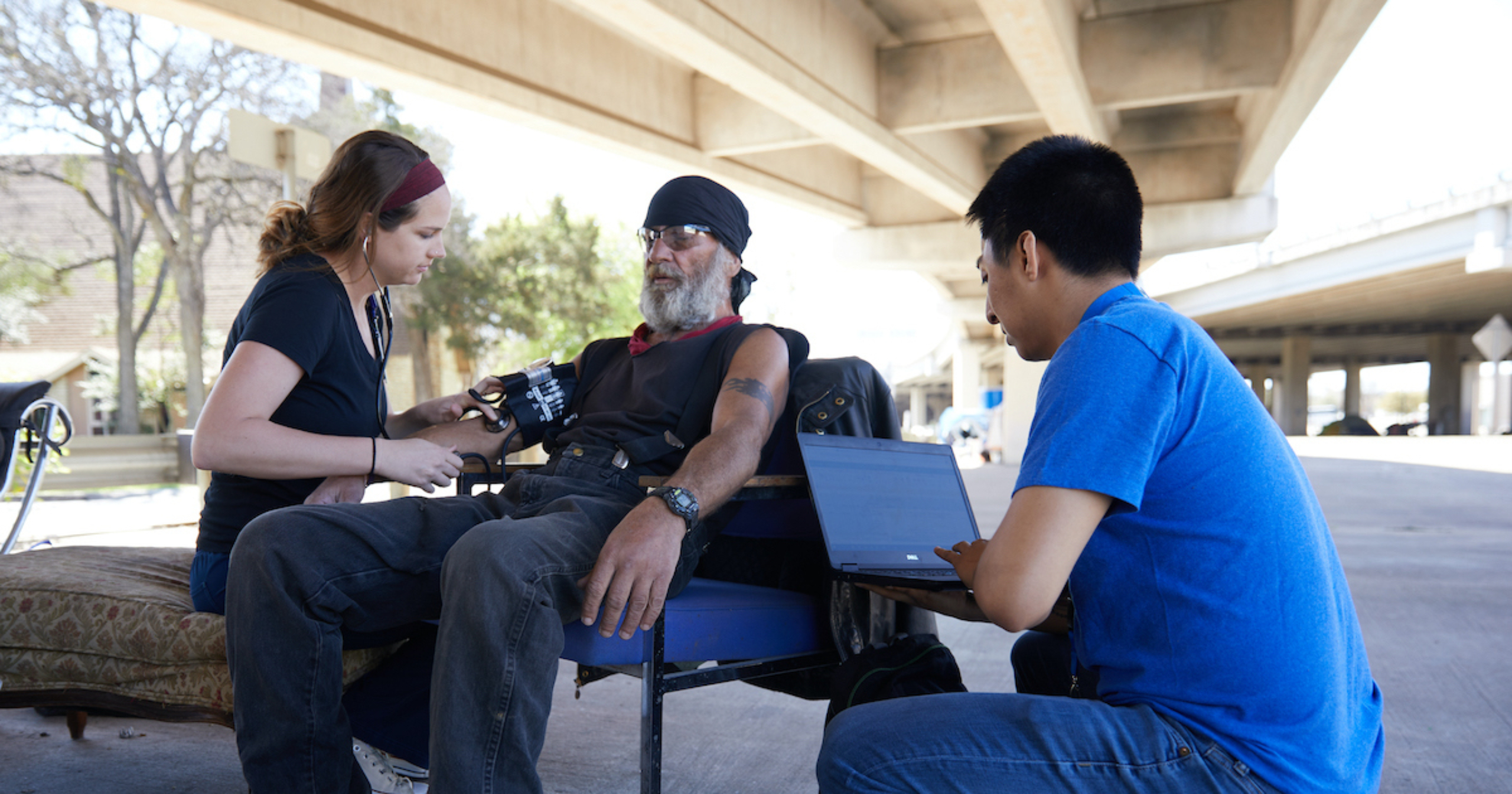As part of a summer 2023 snapshot of community-focused initiatives, Dell Med highlighted a sampling of 18 active collaborations and partnerships involving more than 30 community-based organizations.

Image courtesy of Integral Care.
The impact of this work is being felt among diverse populations and communities across Central Texas, including:
- Serving 13,700-plus patients, most from historically underserved communities;
- Educating 4,500-plus middle and high school students in pathway programs aligned with pursuing careers in health professions;
- Making 15,000-plus referrals to social services for high-need patients in collaboration with local primary care physicians;
- Supporting 235-plus students in fields spanning psychology, psychiatry, social work and nursing in interprofessional education focused on delivering integrated mental and behavioral health services to medically underserved Texas communities; and
- Engaging 335-plus undergraduate and graduate students in experiential learning opportunities to address a community-driven challenge or need.
“This snapshot drives home the diverse and widespread impact that teams from Dell Med are having by working closely with community experts and partners,” said Navkiran “Kiran” Shokar, M.D., chair of the Department of Population Health at Dell Med. “As we advance work to improve health for all — and focus on having real-world impact — these collaborations remain essential to our collective success.”
Making a Difference for Patients & Families
Dell Med’s collaborative work spans health care delivery, health promotion and disease prevention, education and enrichment activities, research and more. Some of the organizations involved include Austin Public Health, Austin Community College, Central Texas Addressing Cancer Together coalition, the City of Austin, CommUnityCare Health Centers, Ending Community Homelessness Coalition, Integral Care, Lone Star Circle of Care, People’s Community Clinic, United Way of Greater Austin and other UT Austin colleges and schools.
Initiatives focus on areas of need related to mental health, substance abuse, cancer prevention and addressing social determinants of health, and are impacting diverse populations ranging from people experiencing homelessness and LGBTQ+ communities to veterans, underinsured or uninsured patients, and older adults. Examples include:
- The Big Pink Bus, which is operated by Lone Star Circle of Care and provides breast cancer prevention services to uninsured, low-income and high-risk individuals in Central Texas, has screened over 3,500 patients by bringing mobile mammograms to individualized locations with support from the Central Texas Addressing Cancer Together coalition.
- On the cancer screening front, a colorectal cancer screening initiative in partnership with CommUnityCare doubled the percentage of patients screened for colorectal cancer from 18.4% to 37% in its first year. Currently, up to 44 percent of patients have been screened. The initiative has been made possible by multiple grants from the Cancer Prevention and Research Institute of Texas (CPRIT). Dell Med also recently received a $3 million CPRIT award to create the statewide Coordinating Center for Colorectal Cancer Screening Across Texas.
- The Integrated Behavioral Health Scholars Program (IBH) is an innovative cross-campus collaboration between Dell Med, the Steve Hicks School of Social Work, School of Nursing, Department of Psychology and Department of Educational Psychology. The program aims to build a diverse and culturally responsive behavioral health workforce with expertise in delivering integrated behavioral care, particularly to underserved Texans. Since 2017, over 225 students have participated in the program and have trained in over 40 community placement locations, with approximately 90% of graduates working in medically underserved communities in organizations such as CommUnityCare and Integral Care.
- Since 2020, the “B-Team,” a partnership between Dell Med and Ascension Seton, has screened more than 600 patients for opioid use disorder, started more than 125 patients on medication, and discharged more than 350 patients with coordinated care in Central Texas as part of the Support Hospital Opioid Use Disorder Treatment (SHOUT) model. Program leaders continue to evolve and expand the SHOUT model to hospitals across Texas. Thus far, over 6,000 patients throughout the state have been screened, more than 2,400 patients have started medication and over 600 patients have been discharged with coordinated care.
- The Mobile Medical and Mental Health (M3) Team is a community-based collaboration between Dell Med, Integral Care and CommUnityCare that provides intensive, multidisciplinary care to individuals experiencing chronic homelessness with mental health, substance use and medical conditions. Since 2019, the M3 team has served over 70 patients. 100 percent of these patients have been enrolled in insurance, 70% of these patients have gotten into housing, and patients have experienced a 50% reduction in emergency department visits.
- Through Dell Med’s Health Leadership Apprentice and Impact Factory programs, over 300 UT Austin and Huston-Tillotson University undergraduate and graduate students have partnered with local organizations to enhance health and health care through community-driven initiatives, research, education and clinical care initiatives.
- Since 2015, 4,500 middle and high school students across Central Texas have participated in Dell Med’s pathways programs, including the Health Sciences Summer Camp and Summer Healthcare Experience in Oncology, to introduce them to careers in health sciences through education, activities and mentorship with leaders in the medical field.